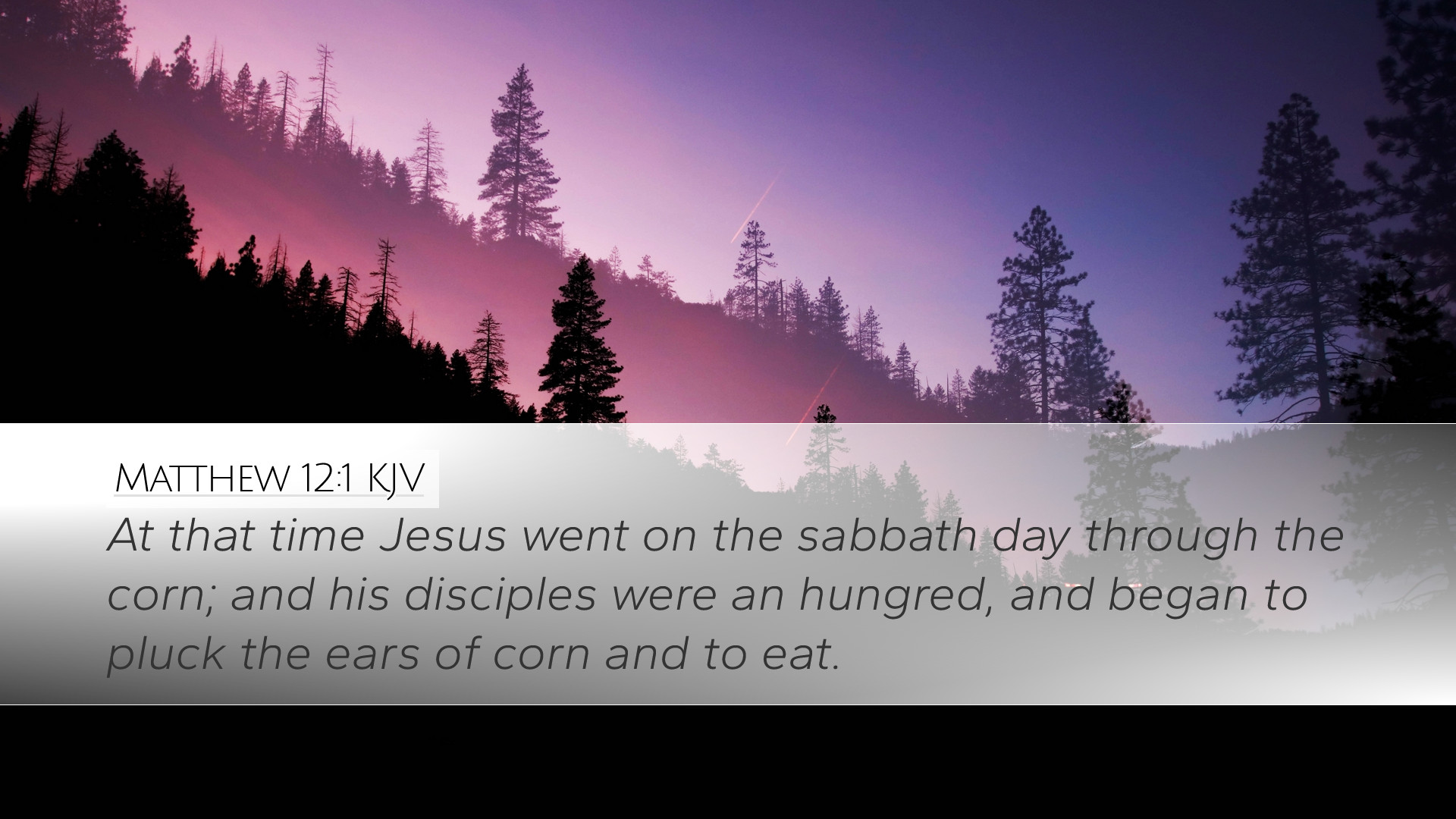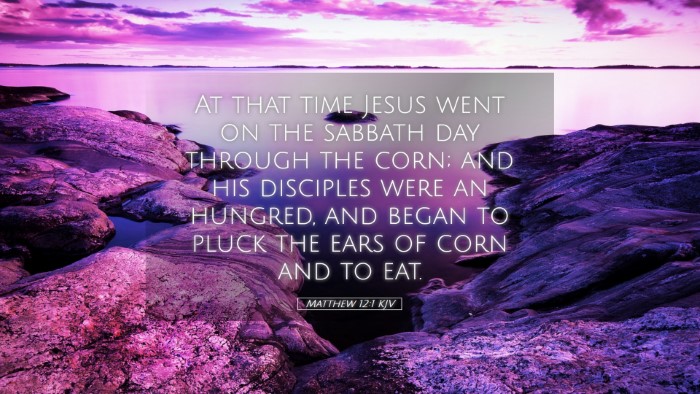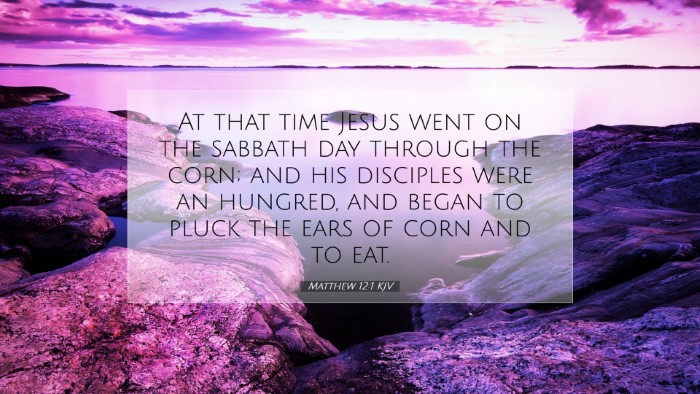Commentary on Matthew 12:1
Verse Context: Matthew 12:1 states, "At that time Jesus went on the Sabbath day through the corn; and his disciples were an hungred, and began to pluck the ears of corn, and to eat."
Introduction
This particular passage sets the stage for a discussion on the Sabbath and the nature of authority as it pertains to Jesus' ministry. The act of plucking corn on the Sabbath raises questions about interpretation of the Law, the essence of worship, and the heart of God’s commandments.
Exegesis and Historical Context
-
Jewish Sabbath Tradition: In Jewish tradition, the Sabbath is a day of rest mandated by the Ten Commandments (Exodus 20:8-11). The Pharisees had added extensive regulations regarding what constituted work on the Sabbath, which often led to legalistic interpretations.
-
Jesus’ Authority: This event illustrates the growing tension between Jesus and the religious authorities of His time. The disciples’ actions in plucking corn would have been viewed by the Pharisees as a violation of the Sabbath laws.
Insights from Matthew Henry
Matthew Henry emphasizes that the conduct of Jesus and His disciples was not a mere act of hunger but reflected deeper lessons about mercy, necessity, and the true meaning of the Law. He notes:
-
Human Need vs. Religious Law: Henry highlights that the disciples acted out of necessity; they were hungry. This reveals that human need must take precedence over rigid adherence to the law.
-
Mercy over Sacrifice: He points out that God desires mercy, not sacrifice (Hosea 6:6). Thus, acts done in compassion and need are preferred over ritualistic observance when the two conflict.
Reflection from Albert Barnes
Albert Barnes offers a detailed examination, pointing out that not only were Jesus’ actions significant but the reactions of the Pharisees were also revealing. Barnes shares insights regarding:
-
Pharisaical Legalism: The Pharisees’ focus on the technical violation of the Sabbath law blinded them to the principle it represented. They failed to see the presence of the Messiah, who was above the law.
-
The Right to Interpret the Law: Jesus demonstrates His authority to interpret the Law, suggesting that He understands its purpose better than those who enforce it. This foreshadows the climax of His authority throughout the Gospels.
Considerations from Adam Clarke
According to Adam Clarke, this verse also shows the disciples in a common, human situation – experiencing hunger. Clarke illustrates that Jesus uses this moment to challenge:
-
The Use of the Law: Clarke believes Jesus was setting forth the idea that while the Law is important, it must not be applied in a manner that neglects compassion and practical needs.
-
Spiritual Authority: The actions of Jesus demonstrate that He has the authority to challenge and redefine the understanding of the Law, prioritizing the spirit of the Law over its letter.
Key Themes
-
Understanding of the Sabbath: This episode invites deeper reflection on the nature and purpose of the Sabbath, emphasizing that its intent is to aid man, rather than burden him.
-
Human Compulsion: The act of gathering grain illustrates the human condition – the necessity of sustenance and the compassionate response of God, which is personified in Jesus.
-
Authority of Christ: This fragment of scripture serves as a reminder of Christ's divine authority over the Law and establishes His role as the ultimate interpreter of God's commands.
-
The Essence of Worship: Worship and service to God are to be reflective of His mercy and love, rather than mere adherence to a set of laws; this establishes a relational rather than a transactional view towards God.
Conclusion
Matthew 12:1 invites a multifaceted reflection on the priorities of worship, the nature of divine authority, and the inherent love and compassion that permeate God's commandments. For pastors, theologians, and students alike, this verse serves as both a challenge and a comfort, reminding us of the fullness of grace brought through Jesus Christ.


